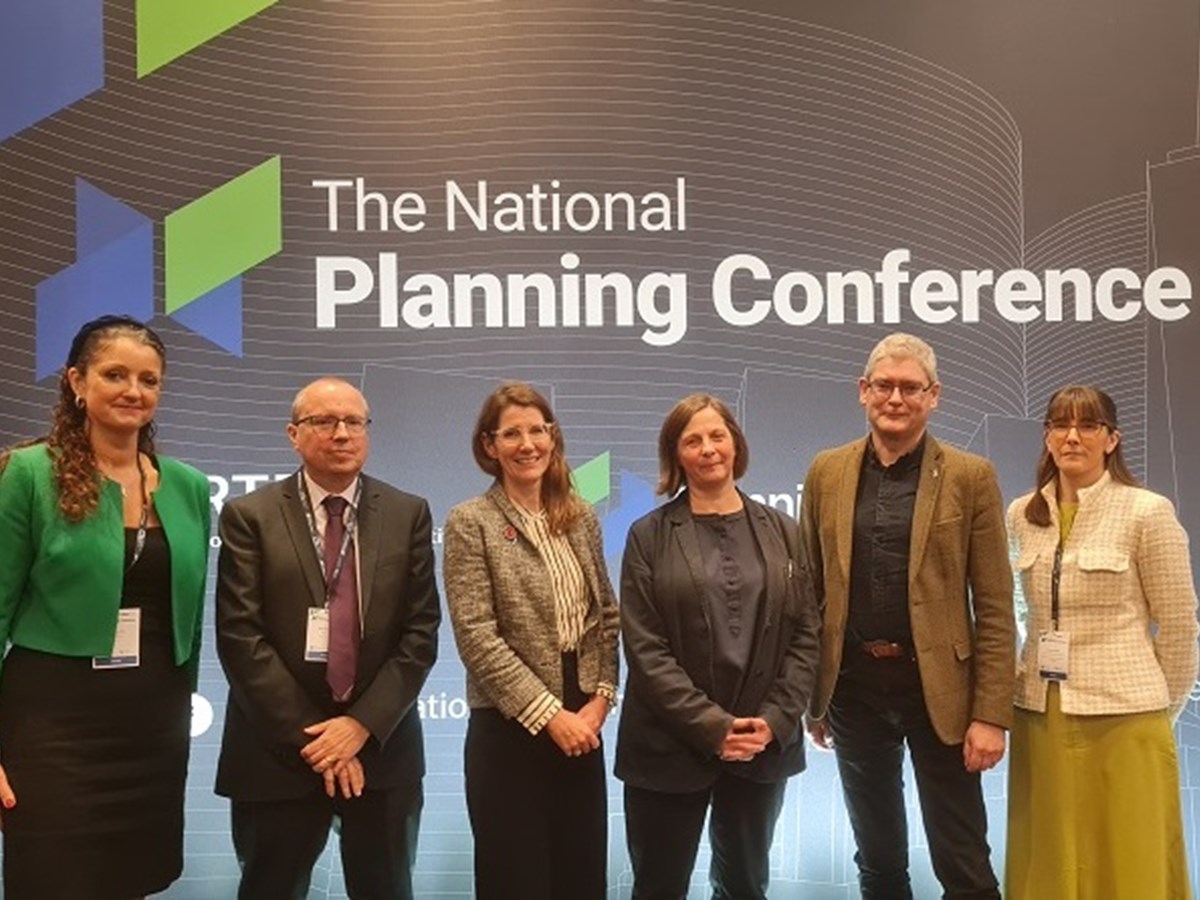 Dr Caroline Brown is the Director for Scotland, Ireland and English Regions. She joined the Institute in October 2023.
Dr Caroline Brown is the Director for Scotland, Ireland and English Regions. She joined the Institute in October 2023.
My first few weeks at the Institute have been pretty fast-paced, not only getting into the everyday business of committees and internal meetings, but also taking part in external events including the National Planning Conference (NPCUK) in Birmingham last week. There’s a lot to take in and lots to reflect on – and as you might imagine I’m trying to absorb lots of information as well as think about how I can contribute to the Institute and to the profession.
One of the themes I keep thinking about is about time. I have both a clockmaker and a geologist in the family, so perhaps this explains my interest in both short and long measures of time.
In development management the emphasis is on speed with the aim of determining planning applications in a suitably short time span – preferably measured in weeks rather than months or years. But development management is really the only part of the system that is capable of moving quickly, and even then, a planning application is only one small part of a much longer timeline of land acquisition, design, consultation, construction and occupancy followed by many decades of post-occupancy use and modification.
Most elements of planning and place-making take place over longer time periods than the weeks or months needed to determine a planning application. In the Chief Planners session at NPCUK last week, Fiona Simpson, Chief Planner for Scotland, outlined the starting point for current reforms in the Scottish planning system – going back to an independent review of the system in 2015. New primary legislation followed in 2019, and early in 2023 a revised and updated National Planning Framework was finalised. And, while it’s been a long time coming, the publication of NPF4 is still only a single time point in a longer process of implementation, with working groups and key agencies developing further specific guidance to help local authorities, developers and other stakeholders turn the words into actions.

Chief Planners at the National Planning Conference alongside RTPI Chief Exec Victoria Hills (left)
Those guidance documents will take time to develop, and the impacts of NPF4 and its ambitious goals on the nature and climate emergencies will also take time to be felt. Ireland has also embarked on some significant changes to its planning system, with the publication of the Planning & Development Bill expected any day and a revision of the national planning framework also underway. These changes have been in train for the last couple of years, and as in Scotland, the implementation timeframe will take a while longer as changes to national, regional and local planning come into effect.
The time paradox
The paradox we face is that addressing the climate emergency requires us to do as much as we can as fast as we can. That suggests that planning needs to be quick – even though almost everything about planning is not quick. I’m coming to the view that policy 1 in NPF4 might just be a way to square that circle: requiring significant weight to be given to the global climate and nature crises when considering all development proposals. It’s certainly going to be worth watching to see how this plays out in practice. I’ll update you in a year or two…


